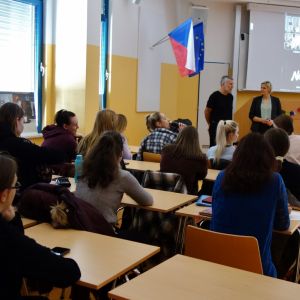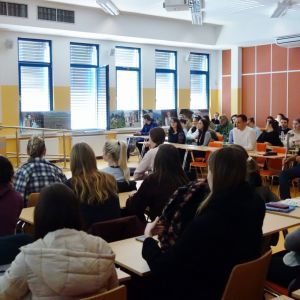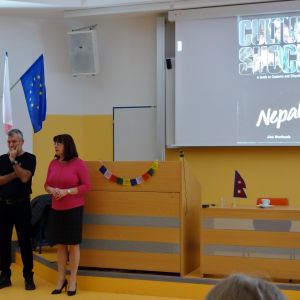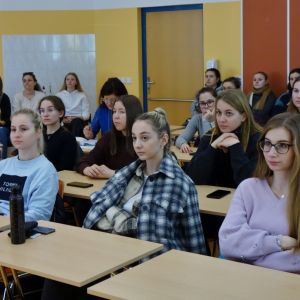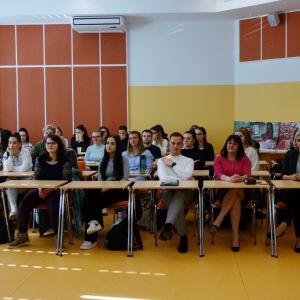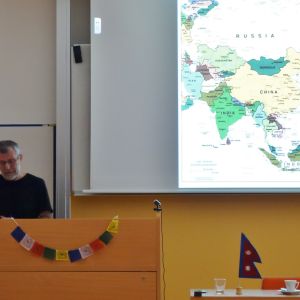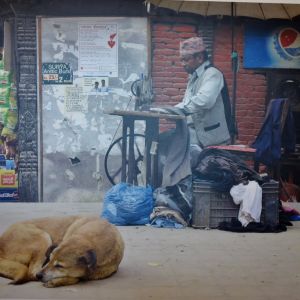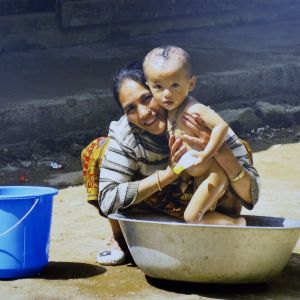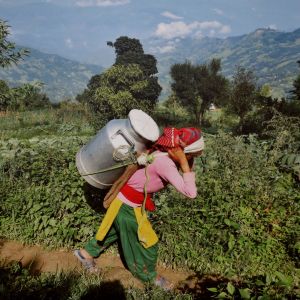A DIFFERENT WORLD – a lecture on Nepal offered an insight into a country our faculty often cooperates with
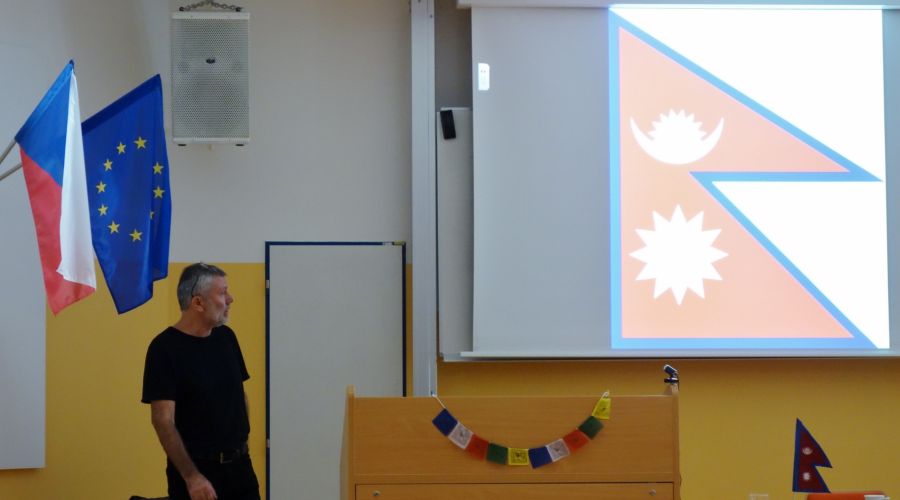
On Tuesday, a lecture was held in the packed lecture hall A, presented by Doc. Ing. Jan Těšitel, CSc., who was instrumental in initiating cooperation between our faculty and Kathmandu University. An agricultural engineer by profession, he has worked in Nepal intermittently for a total of eight years since 2011, focusing on four water projects. Thanks to his and his colleagues' contacts there, he also gave impetus to the development of cooperation between the Faculty of Health and Social Sciences of the University of South Bohemia in České Budějovice and Kathmandu University. Since 2015, our faculty has sent many students there; first those specializing in nursing and later students of physiotherapy. The existing cooperation agreement with our faculty was extended last November in Kathmandu, so the trips can continue.
The Dean of the Faculty of Health and Social Sciences of the University of South Bohemia, Mgr. Ivana Chloubová, Ph.D., who welcomed Doc. Těšitel at the beginning of the lecture, confirmed that this was an extremely interesting opportunity to gain professional experience, get to know another culture, and compare value systems. She has fresh experience of the country, having visited it in mid-November last year with representatives of the Institute of Nursing, Midwifery, and Emergency Care of the Faculty of Health and Social Sciences of the University of South Bohemia, Mgr. František Dolák, Ph.D., and Doc. PhDr. Marie Trešlová, Ph.D. In Kathmandu, the capital of Nepal, the dean signed a memorandum of cooperation with the dean of the School of Medical Sciences.
"I firmly believe that Doc. Těšitel's presentation will inspire you to go on future trips to Nepal. If someone asks me what Nepal is like, I say - different. It is different from what we are used to in our civilization. It is hard to describe Nepal, you just have to experience it. I was very pleasantly surprised by the locals' friendliness and their deep inner calm," the dean told an audience predominantly composed of students.
Doc. Těšitel emphasized that he had never been to this country as a tourist but always as a scientist and member of a team of hydrogeologists. This allowed him to learn more about the mentality of the locals and their daily lives. At first, they focused on wells, then on flood protection strategies, and the fourth project was devoted to wastewater treatment using root cleaning systems. He then summarized: "I also dealt with how likely our European technologies were to be applied there. It depends on whether this technology is close to their cultural climate - if not, it will end, even if it is necessary. For example, we encountered non-existent legislation or other hygiene standards."
He based his presentation on photographs that vividly depicted the everyday life, architecture, landscape, and environment of the city and slums. Some of these had been recently exhibited in the main building of our faculty, and during the lecture, participants in the hall were able to view them. Doc. Těšitel also had several practical tips for students planning to travel to Nepal, and tried to briefly express what fascinated him most about the country and its people: "It’s their resilience, how they get out of the difficulties that come their way, solidarity, friendliness, willingness... We in Europe are captives of linear time and are always planning, while time flows more slowly there, but eventually, everything important gets done. They are spiritually elevated and have no ambition to assert themselves, so we did not encounter any aggression. Even the frequent honking of drivers is just an indication that I am driving, not an order to 'get out of the way..."
Our students who want to travel to Dhulikhel Hospital in Kathmandu must first pass an interview at our faculty. When they succeed, they usually go there for a two-month professional internship, which they complete at the hospital. Like most Europeans, many of them initially experience culture shock in Nepal. However, if they change their perspective and remain receptive, they will return more enriched. Although the medical equipment in Nepal is not always as high-quality as ours, caring for patients and the way of life in this country teaches students the importance of these qualities: humanity, empathy, and patience. Many Europeans fundamentally rearrange their hierarchy of values there.
Community care, which is highly developed in Asian countries, goes hand in hand with professional medical care. The work of healthcare personnel differs in many respects, and the role of family and loved ones in patient care is crucial. This was confirmed by Dean Dr. Chloubová, who, during her recent visit to Dhulikhel Hospital, met many relatives who were prepared to take care of their loved ones in the hospital, even if this meant sleeping on a mat under their bed at night.

